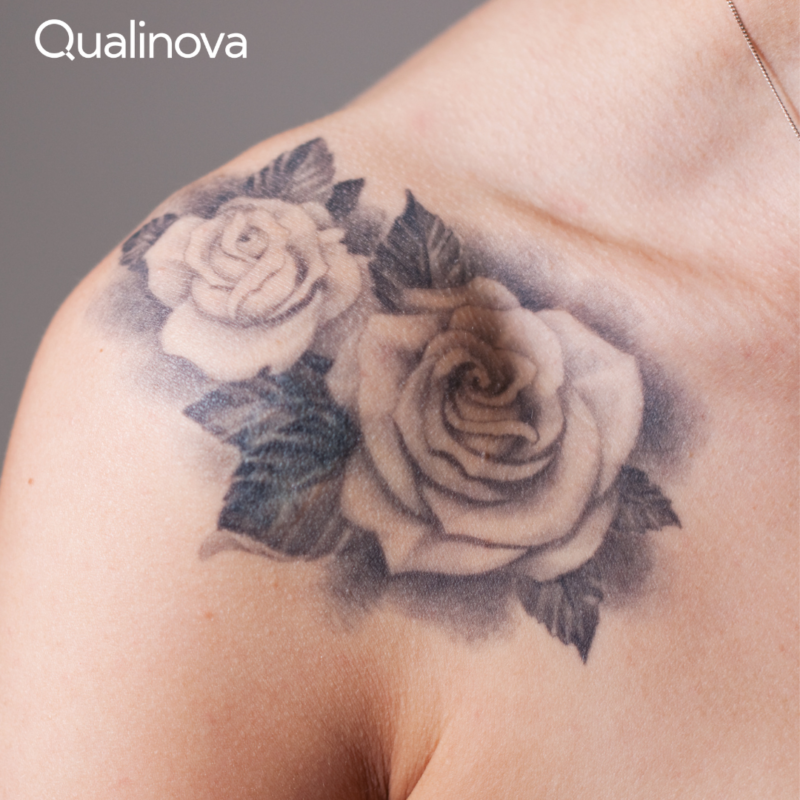Uncategorized
Why Do Tattoos Fade Over Time? Understanding the Factors and How to Keep Your Tattoo Vibrant for Longer
Tattoos are a unique form of personal expression, but over time, they tend to fade and lose their definition. Have you noticed that your tattoo isn’t as vibrant as it once was? This is normal, but understanding the factors behind tattoo fading can help you keep your artwork intact for longer. In this post, we’ll explain what happens to your skin and how aging affects the preservation of tattoos.
How Does Skin Aging Affect Your Tattoo?
As time passes, skin naturally ages, losing collagen and elastin, the proteins responsible for skin firmness and elasticity. The reduction of these proteins makes the skin less able to regenerate, directly affecting the definition of your tattoo. As the skin loses elasticity, it starts to stretch and wrinkle, which can lead to fading tattoos.
The Role of the Immune System in Tattoo Fading
A factor often overlooked in tattoo fading is the action of the immune system. When you get a tattoo, the ink is injected into the deeper layers of the skin, the dermis. Although the ink is considered a foreign substance, it stays in the dermis, but the body’s immune cells, known as macrophages, begin to absorb and slowly break down the ink particles over time, causing the gradual fading of the tattoo.
Factors That Accelerate Tattoo Fading
In addition to natural skin aging and macrophage action, other factors can speed up the fading process of tattoos:
- Sun Exposure: UV radiation can damage the skin, breaking down ink particles and accelerating tattoo fading. Sunscreen is essential to protect your tattoo from the harmful effects of the sun.
- Lack of Skin Hydration: Dry skin loses elasticity more quickly, which can affect the vibrancy of your tattoo.
- Constant Friction on the Tattooed Area: Tattoos in areas that experience constant friction (such as hands, feet, or elbows) tend to fade more rapidly due to wear and tear.
How to Keep Your Tattoo Vibrant and Defined for Longer
While tattoo fading is inevitable over time, there are some preventative measures you can take to prolong its beauty and intensity:
- Protect Your Tattoo from the Sun: Always apply sunscreen with SPF 30 or higher when exposing your tattoo to the sun. This helps prevent UV rays from breaking down the ink particles.
- Hydrate Your Skin Regularly: Skin hydration is crucial to keep your skin healthy and elastic. Moisturizing creams and oils help preserve the tattoo’s definition.
- Collagen Supplements: Collagen is the essential protein that maintains skin firmness and elasticity. Collagen supplements can help strengthen the skin and prevent tattoo fading, keeping your skin healthy.
- Avoid Excessive Friction: If your tattoo is in an area prone to friction, try to protect the area to minimize wear and fading.
The Impact of Collagen Supplements on Skin and Tattoo Health
Collagen is one of the most important proteins for skin health. As we age, our collagen production decreases, making the skin thinner, less elastic, and more prone to wrinkles. Hydrolyzed collagen supplements can be an effective solution to combat these effects of aging and help keep your skin firmer and healthier. In turn, this can help preserve tattoos, preventing the aging of the skin from accelerating the fading process.
In addition to collagen, vitamins and minerals such as vitamin C and zinc play a crucial role in skin cell regeneration, helping to keep your tattoo defined for longer.
Conclusion
Tattoo fading is a natural and inevitable process, but it can be delayed with proper care. Sunscreen, skin hydration, and collagen supplementation are some of the measures that can prolong the life of your tattoo, keeping it vibrant and well-defined.
If you want to preserve your tattoo and maintain the health of your skin, investing in collagen supplements can be a great option to improve skin firmness and elasticity. Check out our collagen products to learn how they can benefit your skin and tattoos.

